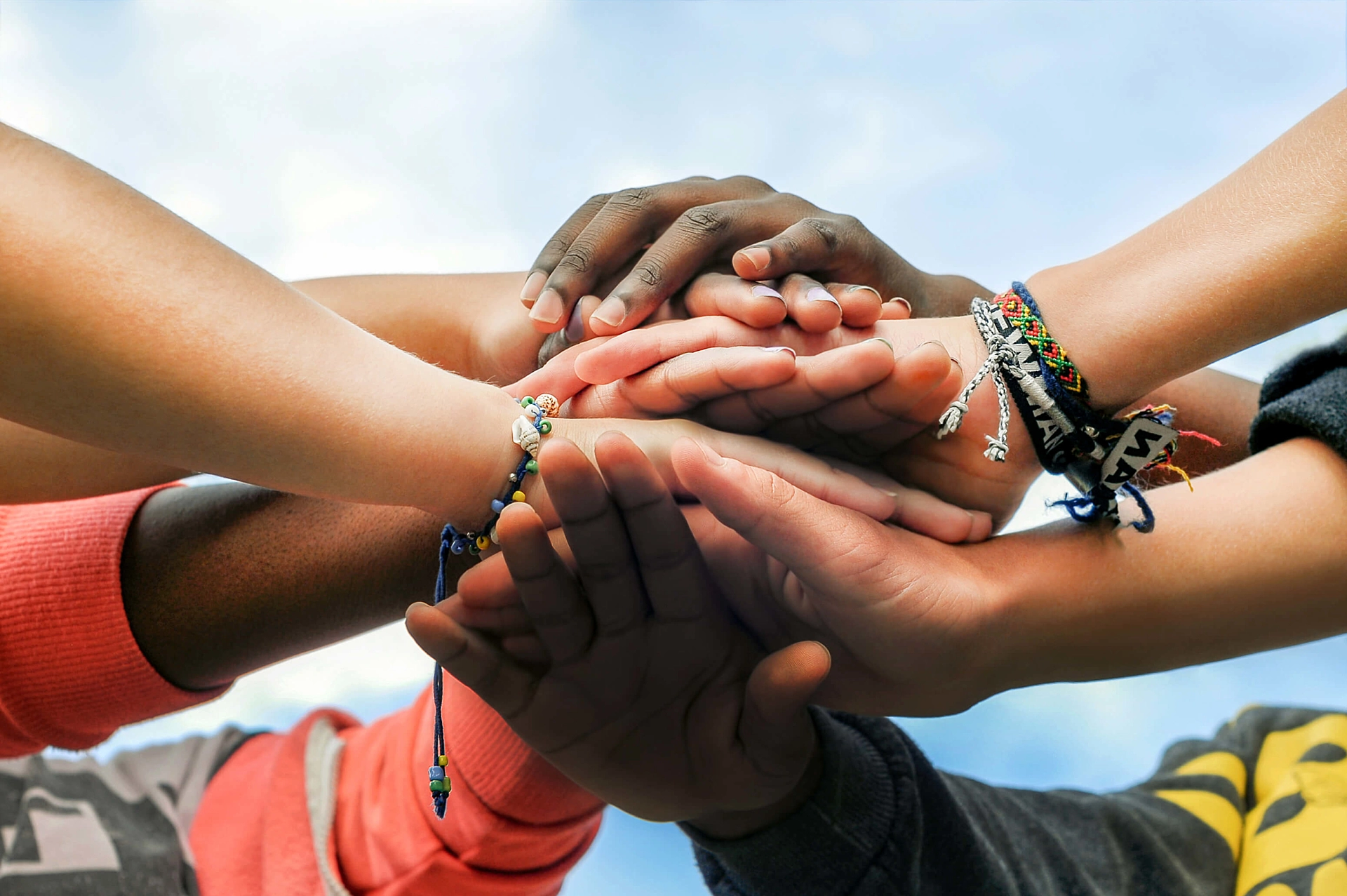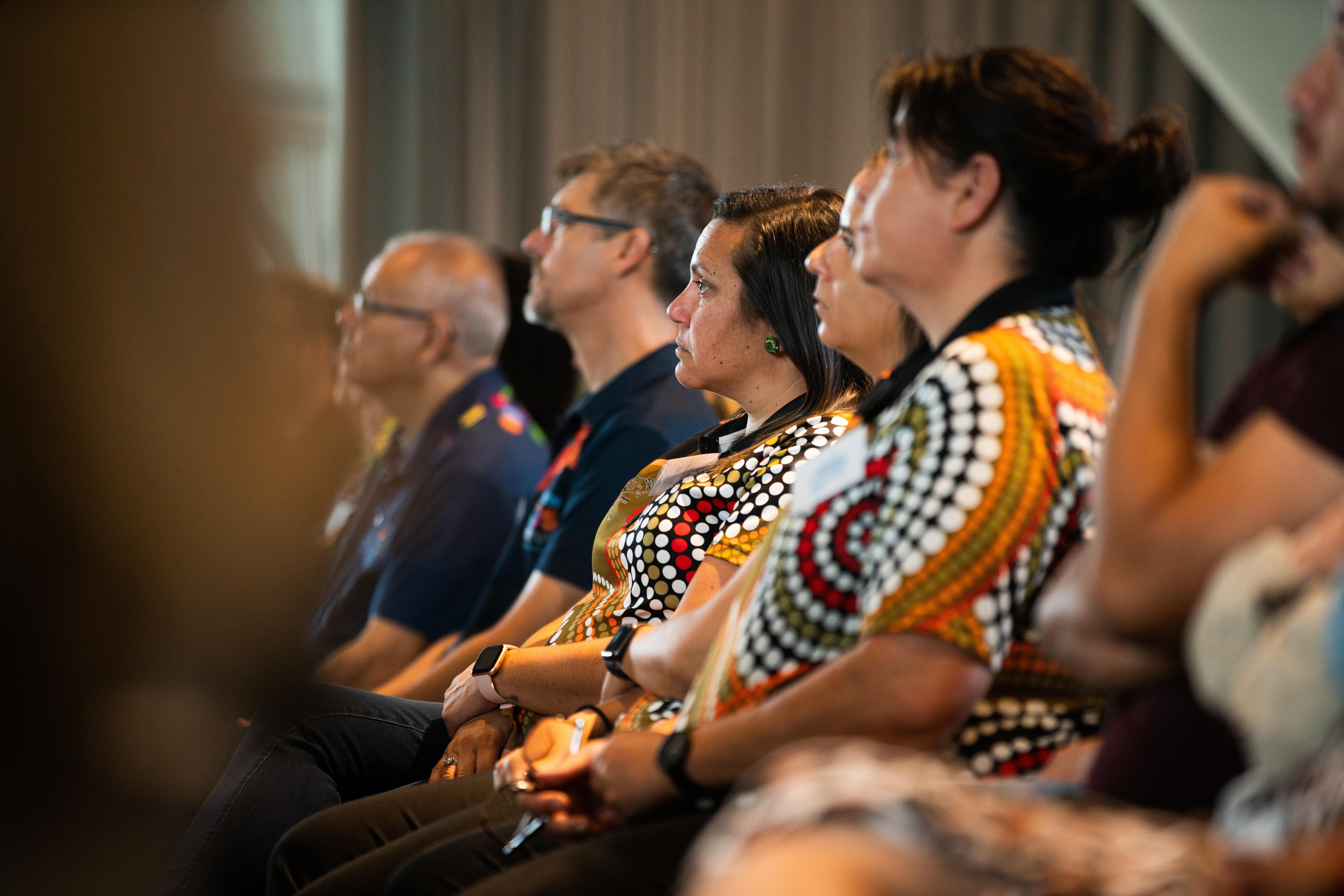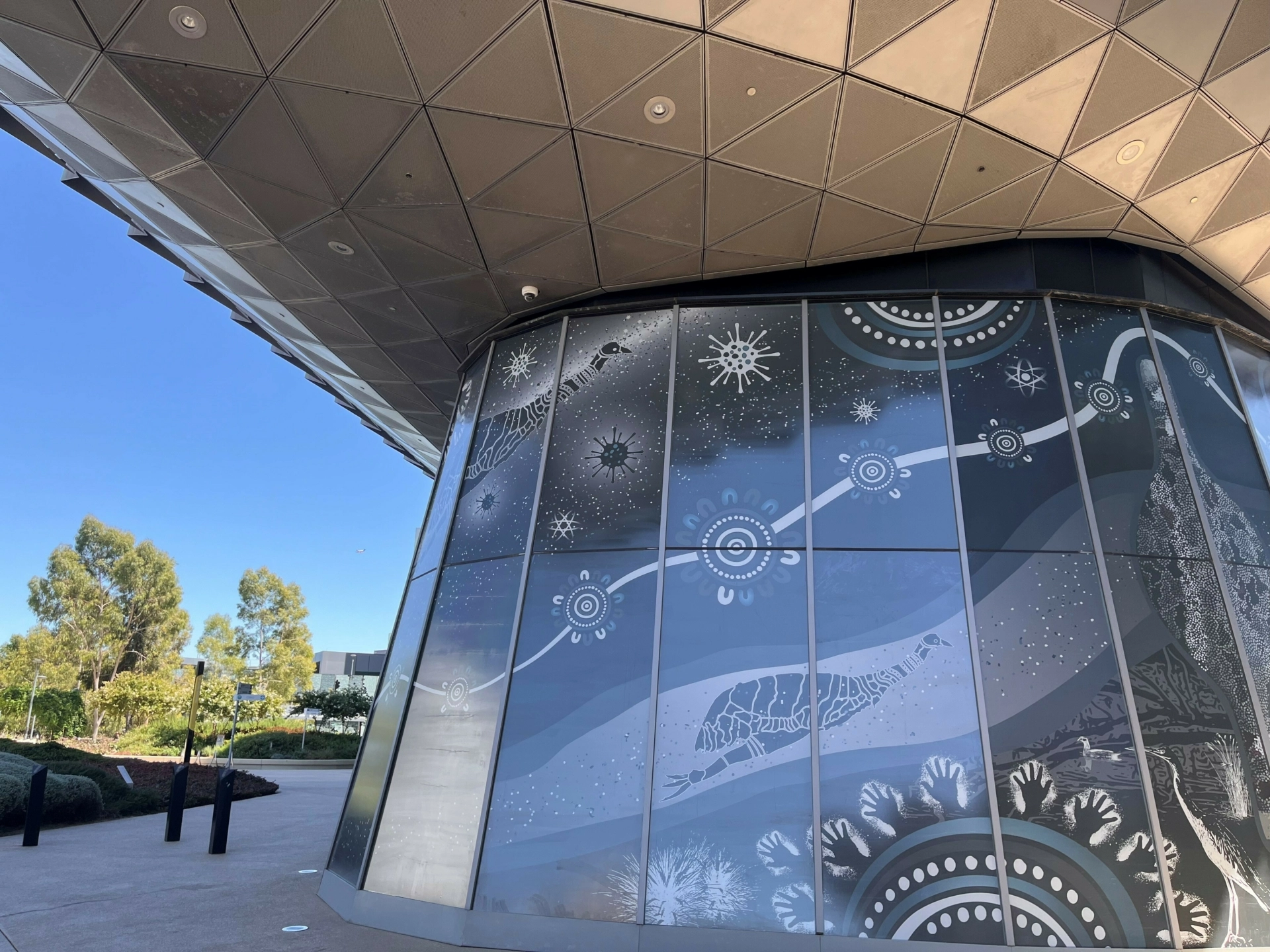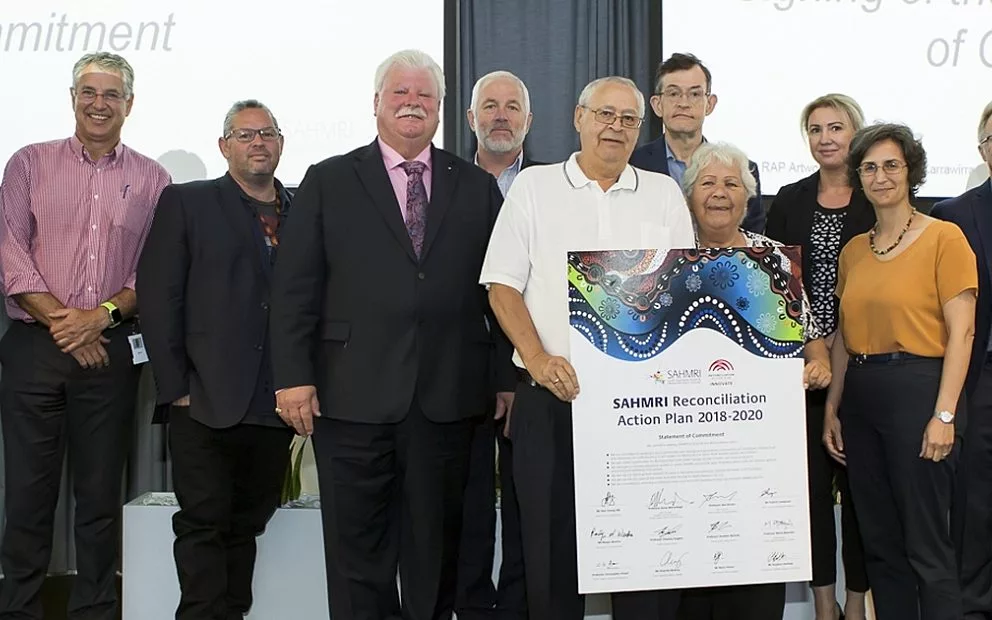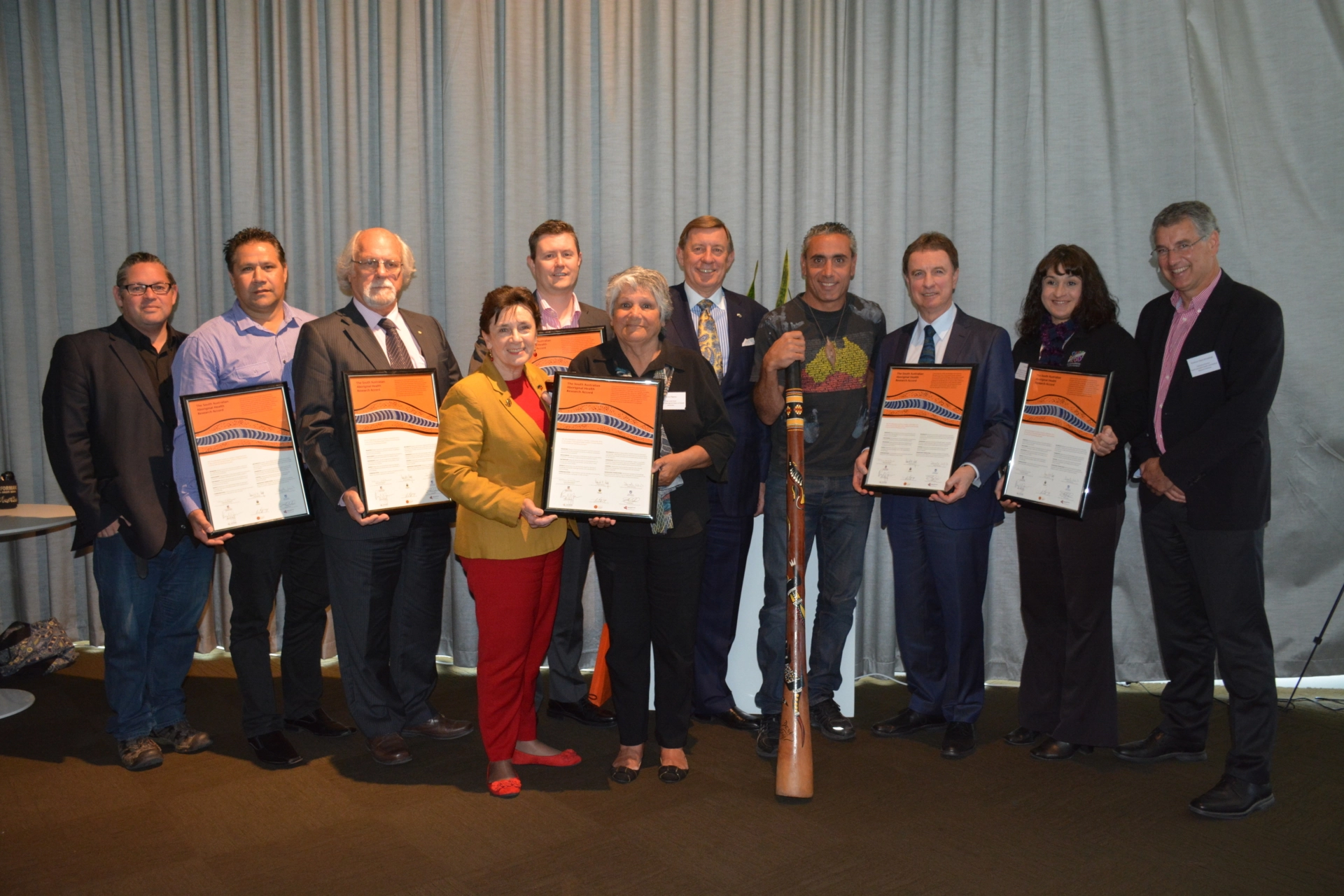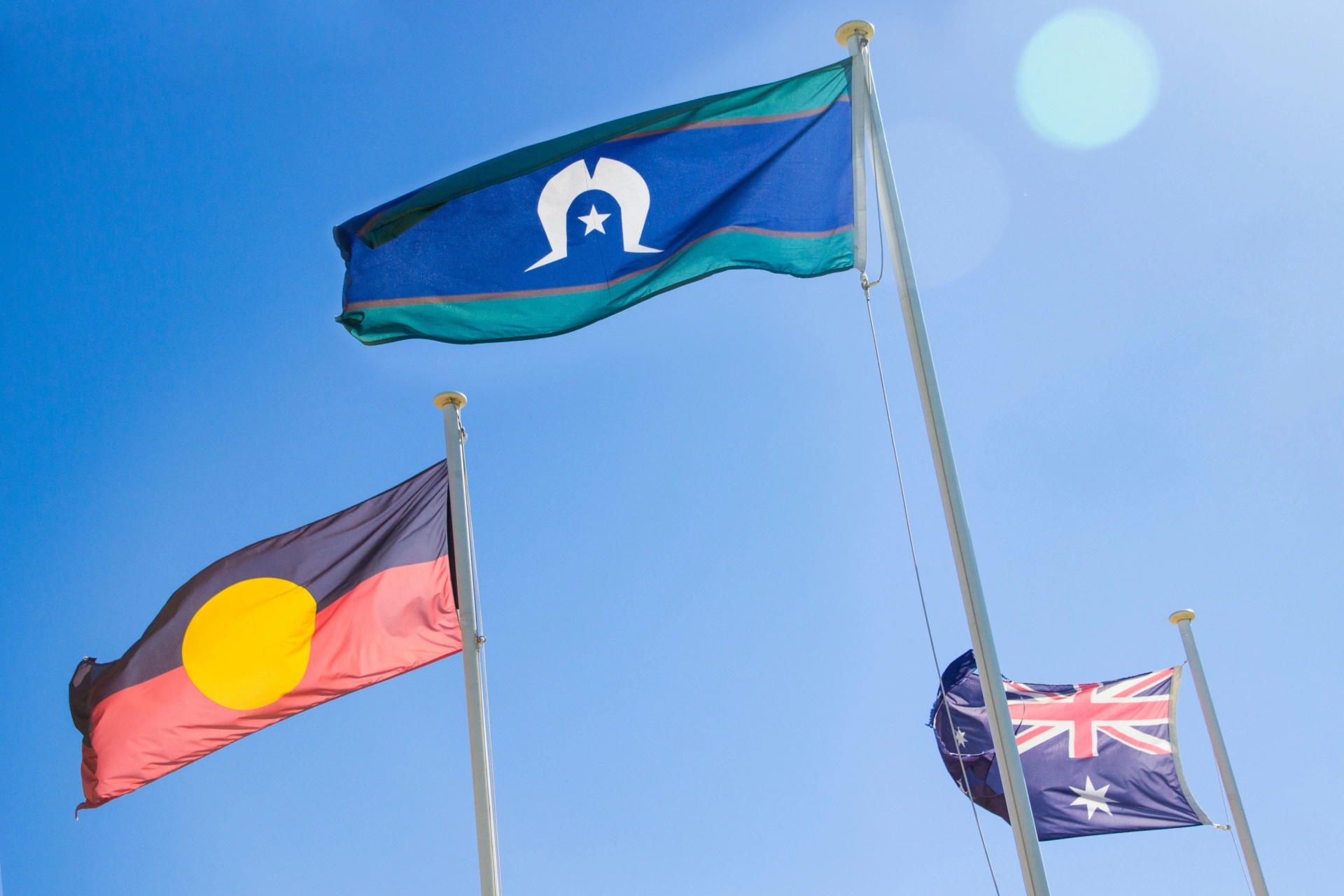SAHMRI acknowledges Aboriginal and Torres Strait Islander people as the first peoples of Australia and the longest continuous living culture in the world. We recognise the injustices of the past and that Aboriginal and Torres Strait Islander people do not experience the same equality of rights and life expectancy as other Australians. We respect the resilience of Aboriginal and Torres Strait Islander people in the face of adversity.
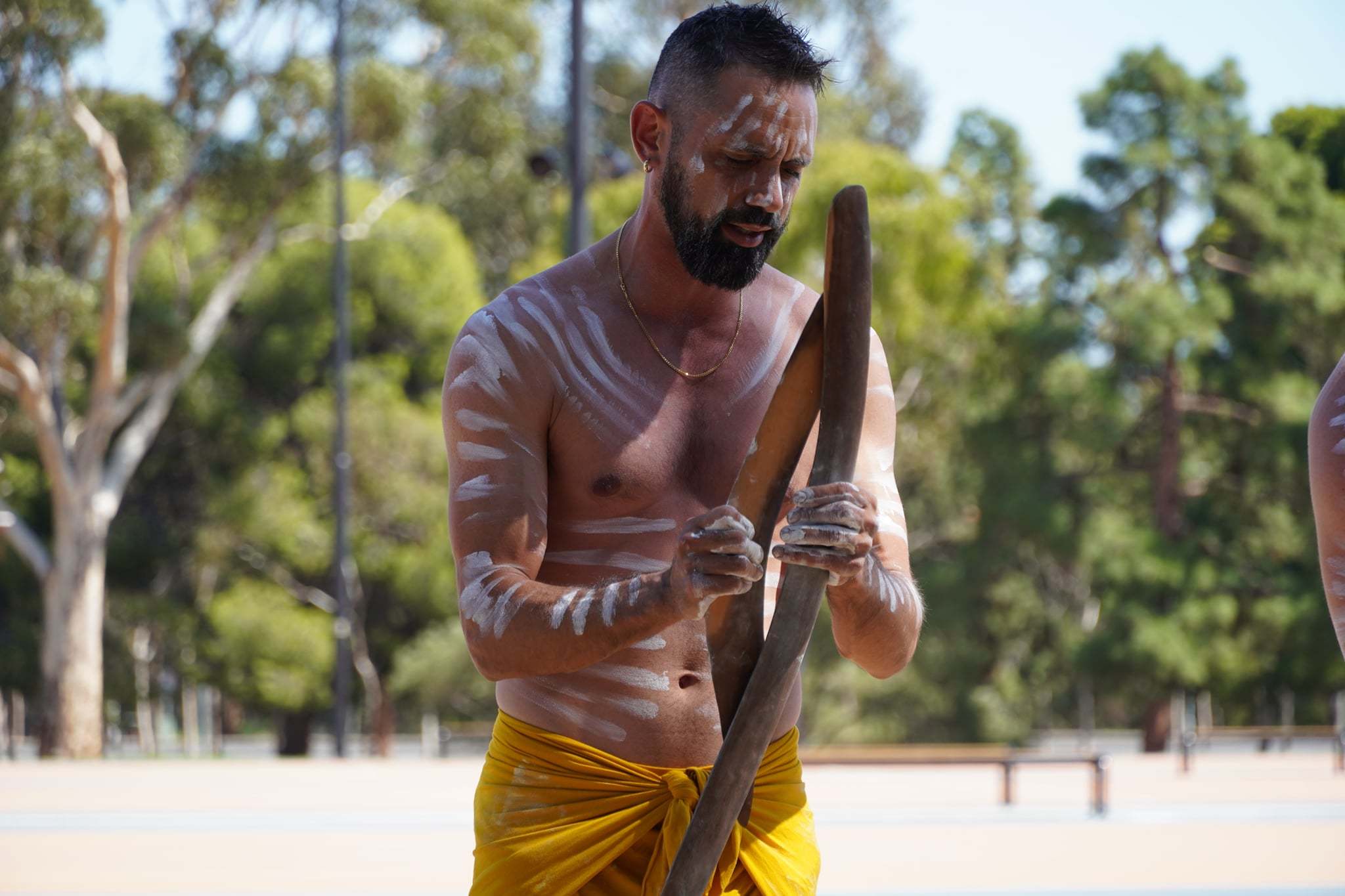
On our pathway to Reconciliation, our research is directed by the historic and contemporary knowledge of Aboriginal and Torres Strait Islander peoples. We are committed to working in equal partnership with Aboriginal organisations, communities and individuals, building trust and respect, deepening our understanding of and respect for Aboriginal and Torres Strait Islander peoples and cultures.
SAHMRI creates opportunities for Aboriginal and Torres Strait Islander people in health and medical research. We are building a culturally responsive workforce across SAHMRI and include ways of working which unite the physical, spiritual and emotional wellbeing of all people.
Together we are improving the health and wellbeing of Aboriginal and Torres Strait Islander communities within South Australia and nationally. We use the learnings from research focussed on Aboriginal populations to improve the health of all Australians.
SAHMRI is committed to achieving a combined vision of a reconciled Australia through working with SAHMRI partners. Our organisation supports the Uluru Statement from the Heart and changing the date of 'Australia Day' to one that is more inclusive for all.
Dates of historical significance
26 January
January 26 is not a day of celebration for all Australians. For many Aboriginal and Torres Strait Islander people it marks the beginning of the invasion and dispossession of their land and brings memories of violence, massacres and genocide. That is why the day is often called ‘Invasion Day’, ‘Day of Mourning’, ‘Survival Day’ or ‘Aboriginal Sovereignty Day’.
Resources:
View SAHMRI's Change the Date statement
13 February
The National Apology to the Stolen Generations came about as a recommendation from The National Inquiry into the Separation of Aboriginal Children from their Families. It highlighted the suffering of Indigenous families under the Commonwealth, state and territory Aboriginal protection and welfare laws and policies.
The National Inquiry then led to the ‘Bringing Them Home’ report which was tabled in Parliament on 26 May, 1997. It contained 54 Recommendations to redress the wrongs done to Aboriginal and Torres Strait Islander people by the race-based laws and policies of successive governments throughout Australia.
Resources:
National Museum of Australia - National Apology
AIATSIS - National Apology
Bringing them Home Report (1997)
19 February
The Letters Patent drafted by the Colonisation Commissioners for South Australia in 1836 was presented to King William IV to formally seek approval to establish the Province of South Australia. The Letters Patent defined the physical boundaries of the Province and recognised the rights of the ‘Aboriginal Natives’ and their descendants to occupy and enjoy the lands therein. These were the first ever Aboriginal rights granted in Australia’s colonial history.
The Letters Patent changes were brought into law in 1938, but as colonisation proceeded no regard was given to the stated rights of Aboriginal people to their land. Colonists bought, leased and were granted lands, effectively dispossessing the original inhabitants of their land, something that continues today.
On Proclamation Day in 2006, the then SA Minister for Aboriginal Affairs, Jay Weatherill, acknowledged publicly that the failure of the state to have met the Letters’ promise 170 years later has “been the cause of much loss and suffering for Aboriginal people”.
Resources:
Transcript of the Letters Patent
Kings Seal
History Trust of SA The Letters Patent
ABC Radio National The Letters Patent
Third Thursday of March
National Close the Gap Day raises awareness and promotes the campaign to close the gap in health outcomes between Aboriginal and Torres Strait Islander people and non-Indigenous Australians. The main goal is to close the gap in health and life expectancy outcomes between Aboriginal and Torres Strait Islander peoples and non-Indigenous Australians within a generation.
The Close the Gap Campaign, launched in 2006, is an independent coalition of Aboriginal and Torres Strait Islander and mainstream peak health and advocacy organisations, advocating for health equality by 2030. The Government’s ‘Closing the Gap’ strategy, launched in 2008, refers to a series of government policies and programs, including specific health targets, which are aimed at reducing disadvantage among Aboriginal and Torres Strait Islander people across six key areas, including health, education, employment and early childhood.
Resources:
Close the Gap Day
Australian Human Rights Commission
Oxfam Australia
26 May
National Sorry Day marks the anniversary of the tabling in Federal Parliament of the Bringing them Home Report following the National Inquiry into the Separation of Aboriginal and Torres Strait Islander Children from Their Families.
Resources:
Reconciliation Australia
27 May - 3 June
National Reconciliation Week (NRW) is a time for all Australians to learn about our shared histories, cultures, and achievements and to explore how each of us can contribute to achieving Reconciliation in Australia.
Resources:
Reconciliation Australia
3 June
On 3 June, 1992, the High Court of Australia handed down its decision in the case known as Mabo v Queensland (No. 2), recognising traditional land rights (Native Title) on Mer (Murray Island). The case was led by Eddie ‘Koiki’ Mabo. The decision recognised that Indigenous people in Australia had rights to land prior to the arrival of British settlers. The Court held that these rights, where they exist today, will have the protection of the Australian law until those rights are legally extinguished.
Resources:
AIATSIS - Mabo Case
What is Mabo Day?
Second Sunday in July to the following Sunday
NAIDOC Week is a celebration of the history, culture and achievements of Aboriginal and Torres Strait Islander people. It is celebrated each year under a different theme.
Resources:
NAIDOC Week
NAIDOC History
Reconciliation Australia - Fast Facts
9 August
By resolution 49/214 of 23 December 1994, the United Nations General Assembly decided that the International Day of the World's Indigenous Peoples shall be observed on 9 August every year. The date marks the day of the first meeting, in 1982, of the UN Working Group on Indigenous Populations of the Sub-Commission on the Promotion and Protection of Human Rights.
Resources:
United Nations
